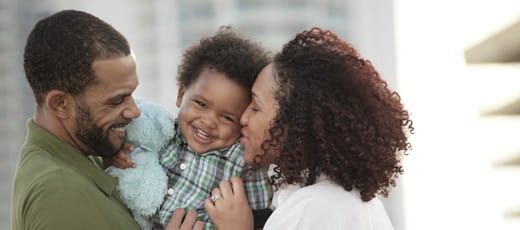Preventing Accidental Poisoning in the Home
 A poison is any product or substance that can harm someone if used in the wrong way, by the wrong person, or in the wrong amount. Poisons can enter the body through the mouth, nose, ears, eyes, or a bite from an insect or animal. Some common poisons include:
A poison is any product or substance that can harm someone if used in the wrong way, by the wrong person, or in the wrong amount. Poisons can enter the body through the mouth, nose, ears, eyes, or a bite from an insect or animal. Some common poisons include:
- Household products (such as laundry detergent or nail polish)
- Carbon monoxide from gas appliances
- Pesticides
- Lead
- Indoor or outdoor plants
- Drugs (prescription, over-the-counter, herbal, or illegal)
- Snake or spider bites
Sixty percent of all poisonings occur to children under the age of 6. The most common exposures for children are ingestion of household products, such as cleaning substances, medications, cosmetics, personal care products, foreign bodies, and plants. The majority of unintentional pediatric poisonings – 90 percent – occur in the home.
Treatment for poisoning depends on the type of poison, the type of exposure, and the age and weight of the person exposed. If you suspect someone has been poisoned, call your local poison control center right away: calling 1-800-222-1222 from anywhere in the U.S. will connect you with the closest poison control center.
By asking a few questions, the professionals at the poison center will be able to tell you whether a poison exposure can be treated at home or if you need to go to an emergency room. However, call 911 if a person is choking, having trouble breathing or is having a seizure. Make sure you follow the 911 operator’s instructions. Do not try to handle the problem yourself by inducing vomiting or giving someone fluids or medication unless it is directed by a medical professional.
Tips for Preventing Poisoning
Follow these tips to help protect your children from unintentional poisoning:
- Keep cleaners and other toxic products out of children’s sight and reach
- Install child safety locks on cabinets where you store poisonous items
- Read product labels to find out what can be hazardous to kids
- Do not leave poisonous products unattended while in use
- Keep cleaning products in their original containers
- Throw away old medicines or other potential poisons
- Check your purse (or grandma’s) for potential hazards and store handbags out of reach of young children
- Buy child resistant packages when available and keep products in their original packages to avoid confusion
- Be aware that safety caps are not really child proof – they are only child resistant and given enough time, a child can still open the container


